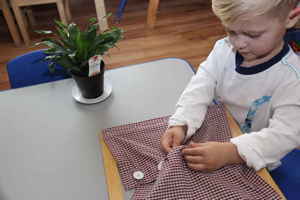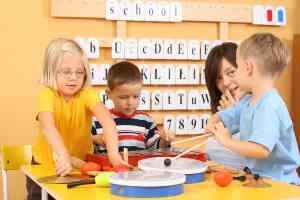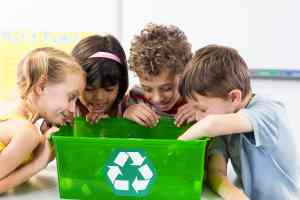Montessori vs. Traditional Education
While there are many differences between the Montessori method vs traditional educational philosophy, here is a brief summary of the biggest distinctions.
The Environment. The Montessori classroom is based on the students’ individual needs and is prepared with student-focused lessons and activities. Traditional classrooms are focused on teacher-centered lessons and activities.
 Active vs. Passive. The Montessori method is based on self-discovery by students. In other words, they are active learners. The lessons and activities are hands-on, designed to help the students learn for themselves. Traditional lessons are taught by the teacher, while students passively listen and are expected to absorb the information.
Active vs. Passive. The Montessori method is based on self-discovery by students. In other words, they are active learners. The lessons and activities are hands-on, designed to help the students learn for themselves. Traditional lessons are taught by the teacher, while students passively listen and are expected to absorb the information.
No Time Limits. Montessori children take as long as they need to work on lessons, with as few interruptions as possible. There are no artificial time constraints or arbitrary schedules they must adhere to, like in the traditional classroom.
 Teacher as Guide. Montessori teachers help each child to move along his own learning path, guiding him on an individual basis. In a traditional setting, the teacher gives the same lesson, at the same pace, to all students, only minimally accounting for individual differences.
Teacher as Guide. Montessori teachers help each child to move along his own learning path, guiding him on an individual basis. In a traditional setting, the teacher gives the same lesson, at the same pace, to all students, only minimally accounting for individual differences.
Age Groupings. Montessori classrooms have flexible “grade-levels” which are determined by developmental range, and older kids will usually be working alongside younger ones. Traditional “grade-levels” are defined by age, and students fall within the same twelve month range.
Flexible Curricula and Pace. Montessori curricula can expand and adjust to the student’s needs and interests. Traditional curricula are fairly rigid and have fixed content that are set without regard to individual needs and interests. The student’s individual pace is also encouraged in the Montessori classroom, instead of expecting everyone to work at the same, predetermined rate.
 For the Love of Learning. The Montessori curricula appeal to the child’s inherent curiosity and desire to learn. Therefore, the child’s self-esteem comes from his own sense of pride in accomplishing something. Traditional curricula are focused on standardized testing and grades, which reinforces external validation as the source of self-esteem.
For the Love of Learning. The Montessori curricula appeal to the child’s inherent curiosity and desire to learn. Therefore, the child’s self-esteem comes from his own sense of pride in accomplishing something. Traditional curricula are focused on standardized testing and grades, which reinforces external validation as the source of self-esteem.
Contact Us for Rates and Info
Call 972-872-8501. Or fill out this form and we'll get back to you soon.
![]()
Testimonials
What Parents Say:


